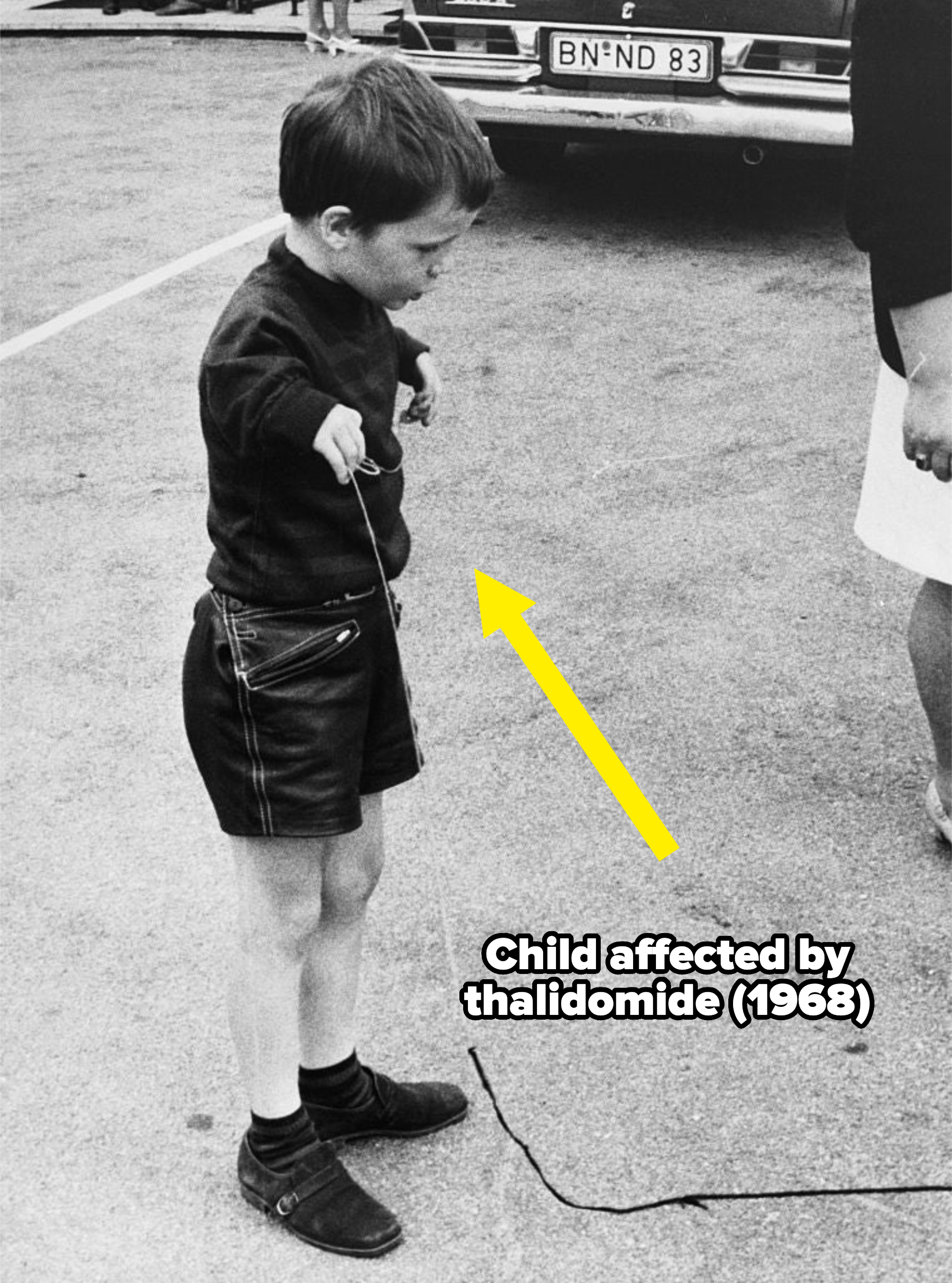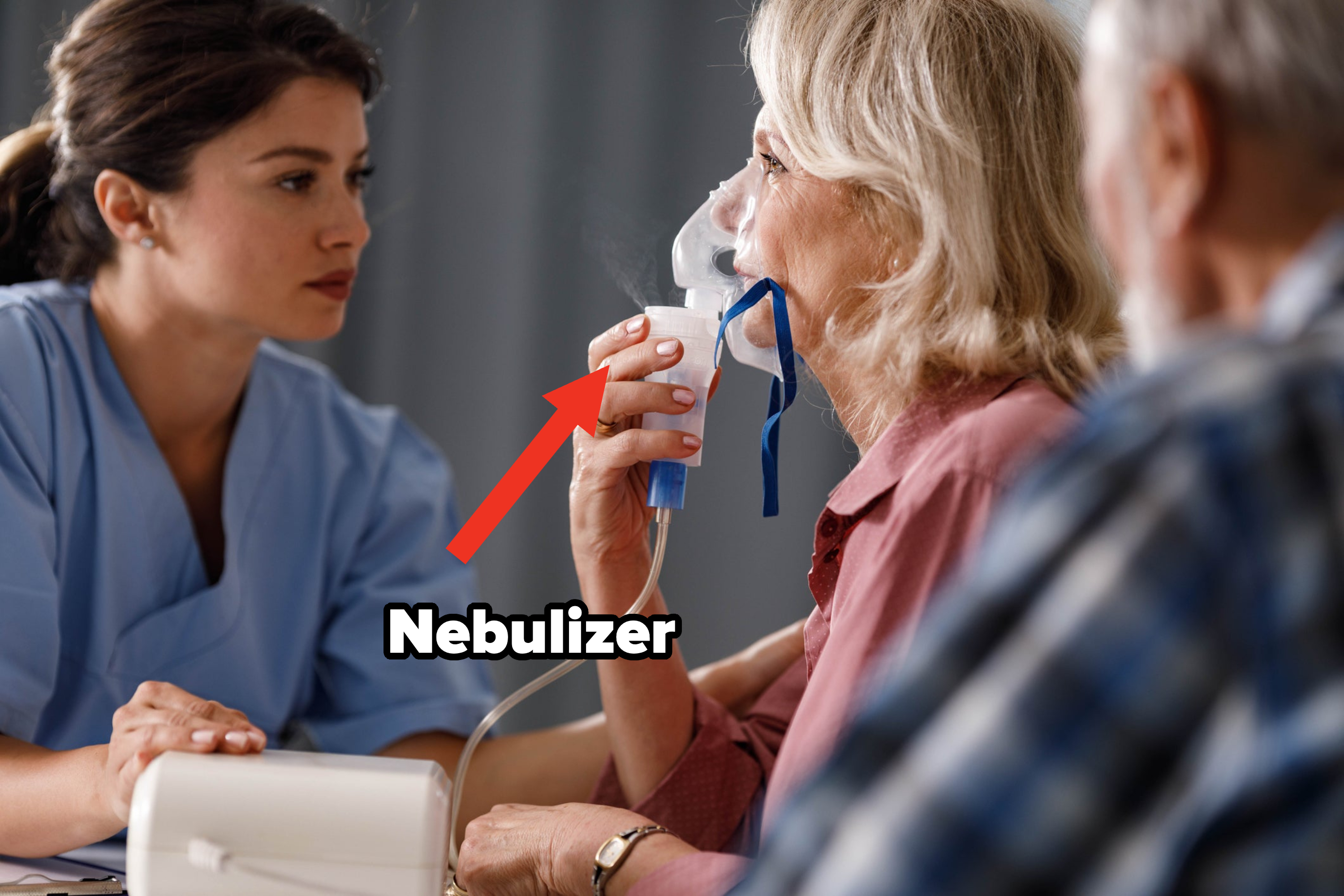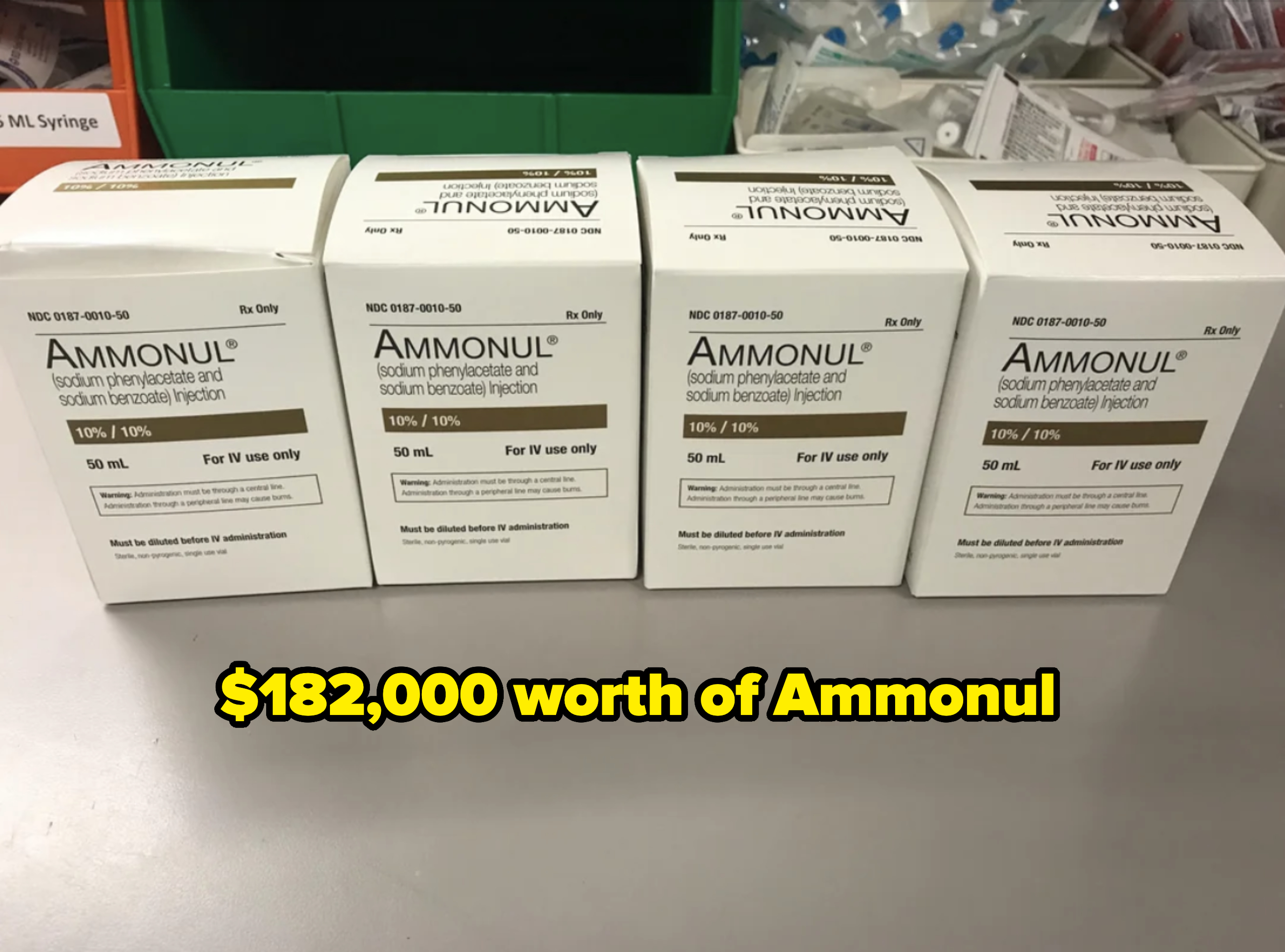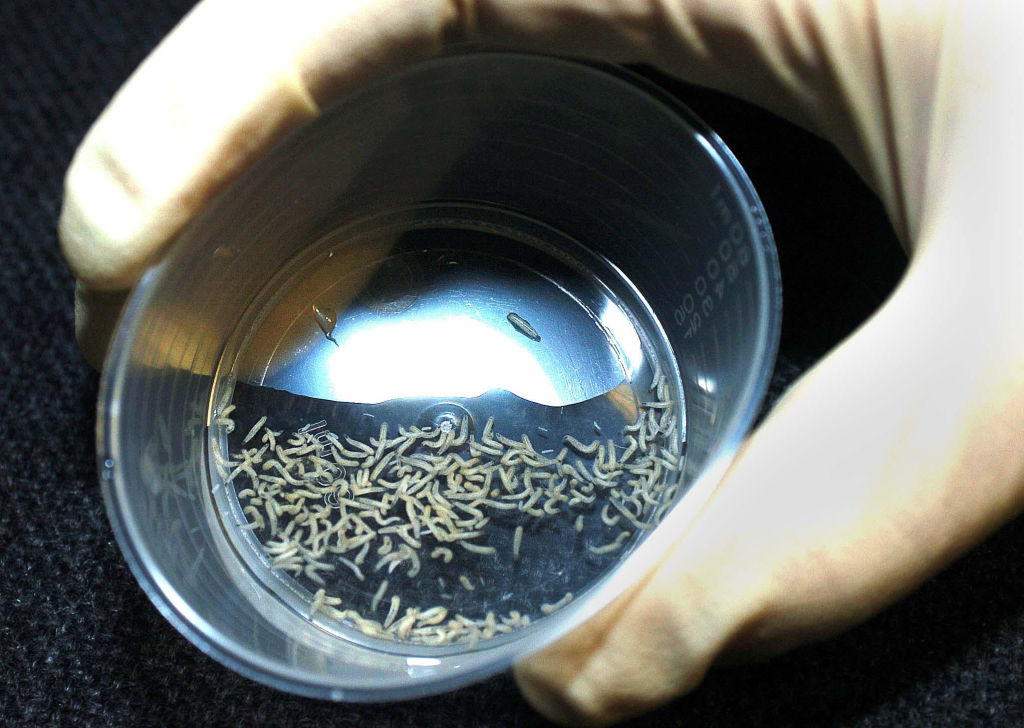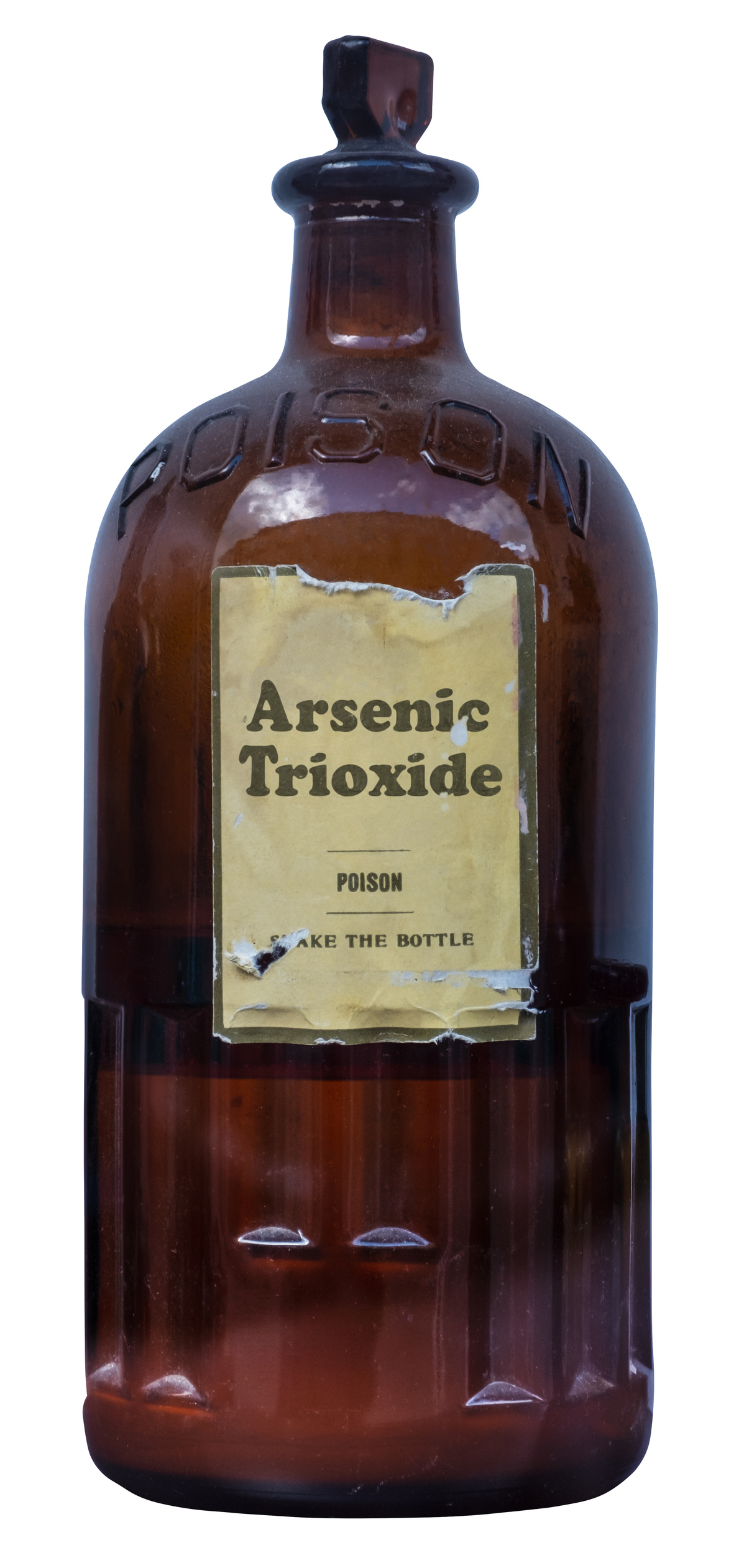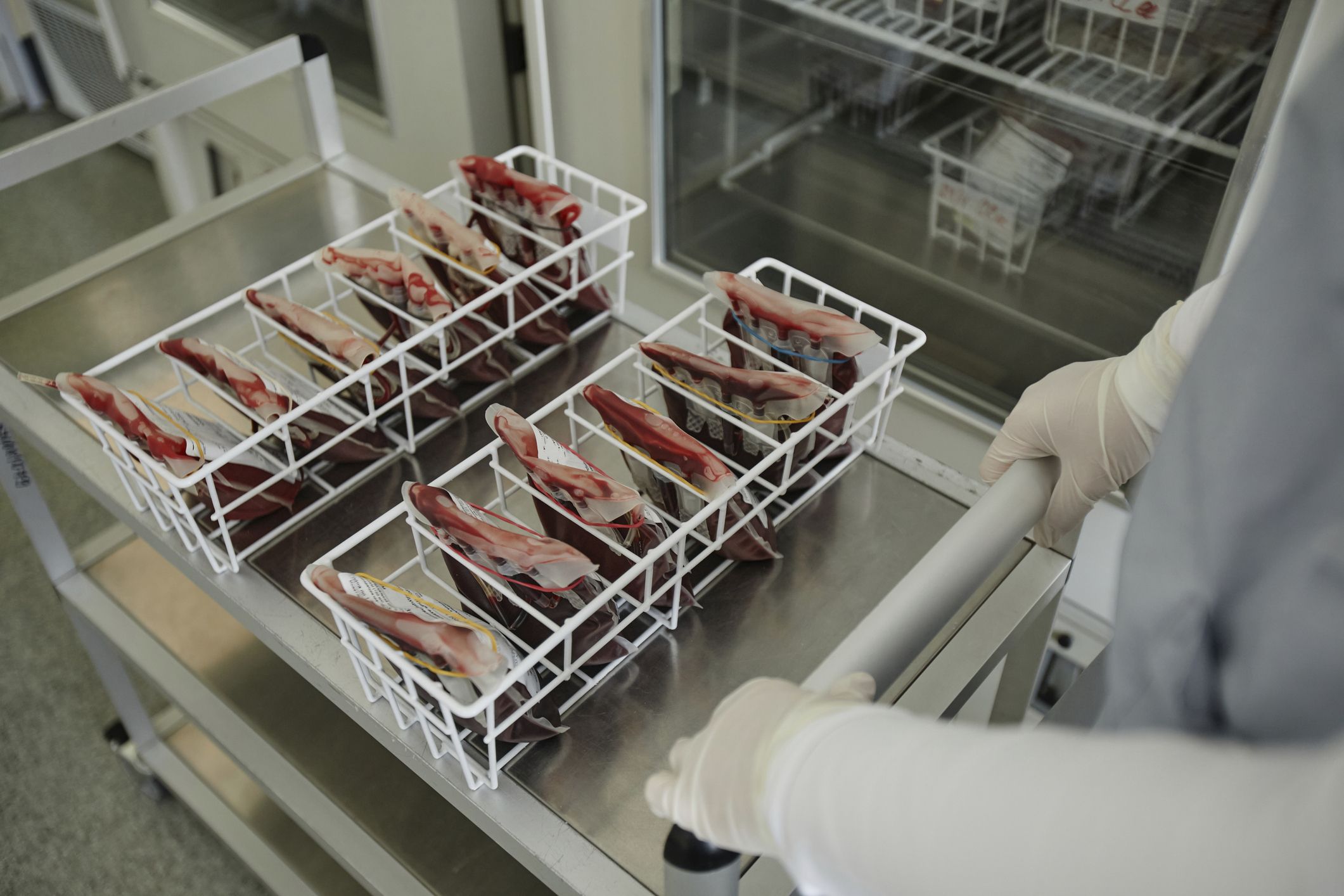So I infer homicidal poisons are hunky-dory … sometimes .
The other day, minding my business at a coffee shop, I came acrossthis threadthat asked: “Nurses/doctors of Reddit, what’s the rarest/least common medication you’ve ever had to administer and why?” It sent me down a rabbit hole; I kind of forgot I was in PUBLIC while Googling things like “poop transplants” and “arsenic poisoning.”
Anyway, I actually learned a TON, and getting educated about rare diseases and medications (and their sometimes WILD prices) was incredibly fascinating. SO, from poisons to candy, let’s get into all the notable treatments medical workers shared:
1.“In 15 years at the hospital pharmacy, I’ve twice had to dispense Thalidomide. It’s used as an end-stage anti-nausea med and comes very carefully packed, with all sorts of warnings about not coming near it if pregnant, and even has little pictures of Thalidomide babies.”
2.“I had a woman who was on Ziconotide, which is an analgesic (pain reliever) derived from cone snail venom. If it isn’t administered correctly (through the spine), it causes hallucinations.”
3.“Respiratory therapist. I gavenebulized morphineto a sweet old lady who was dying very painfully in front of her family. About 12 of us were in the room, including me, the PA who ordered it, and the patient’s family. Twelve of us in a tiny room… you know, nebulizing an OPIATE in a tiny room with a lot of people. When the PA and I came out after four minutes and the treatment was finished, I said I felt kind of funny, and the PA laughed kind of weakly and then sat down. My pupils were pinpoint. We also used to nebulize vodka for pulmonary edema, although I’ve never done it, so I can’t vouch for it.”
4.“Apoop/fecal transplantation. At my first internship during nursing school, there was a patient with a bowel infection caused byClostridium difficile, a bacteria that causes an infection of the colon. A few months before, he was treated with broad-spectrum antibiotics for pneumonia, which led to the infection. They tried other treatments to cure the infection, but nothing worked. Eventually, the patient was accepted into a clinic trial for a fecal transplant. One of his kids was the poop donor. After the transplant, the infection actually cleared up!”
— P_tt
5.“Vodka because of methanol poisoning.”
6.“Some metabolic diseases are extremely rare but can be treated by replacing whatever enzyme is missing. I’ve prescribedIdursulfaseforHunter syndrome. It was something like $250k per month and was covered by the state.”
— kawi - bawi - bo
GoodRx presently estimates Idursulfase at about$63k a calendar month , or $ 756k a year .
7.“NICU nurse here. Ammonul. I’ve had to give it to two different patients. It’s a medication to help with really high blood ammonia levels in kids who have certain metabolic conditions. The medication is extremely expensive!”
8.“Activated protein C. Can’t remember exactly, but it was about £50k a dose [at the time]. Used in severe last-ditch sepsis treatment. Not a vial you want to drop.”
— oedisius
9.“Methylene blue. I gave it to a girl who tried overdosing on Orajel. The active ingredient is benzocaine, which caused her to develop methemoglobinemia, which is treated with the blue drug. It truly is an artificial-looking bright blue, and I gave it to her in her IV.”
10.“Maggots. We had a person addicted to drugs come in who had let an infection go so long in his arm from repeated needle usage that all our attempts to clean it failed. We ended up using maggots to eat away the dead tissue while leaving the healthy tissue intact. The dude just had an open wound full of maggots loosely covered in some gauze for like… several days. The worst part is always having to collect them afterward.”
11.“It was many years ago, and I was working with end-stage cancer patients. This one woman, who began her treatment outside of the United States, was given a mixture of cocaine, heroin, alcohol, morphine, phenothiazine, and some other antiemetics. It was specially made into a liquid and imported from somewhere in Europe. I remember this med so vividly because it’s not every day you give someone heroin. I think it was called something likeBrompton Cocktail, and the lengths that were gone to check out and administer a dose of that stuff — we’re talking a nuclear code type of system. I have to admit, though, that it worked like magic.”
— AlexsSister
12.“Just a medical student and not sure how rare it actually is, but I’ve seen arsenic trioxide prescribed once for a patient with acute promyelocytic leukemia. I think another arsenic compound is used totreat sleeping sickness, but that’s about the only diseases it’s used for these days. Once upon a time, it was thebest treatmentwe had for syphilis.”
13.“Synthetic blood. Melbourne, Australia, and I think it was a world first at the time. We had a trauma patient who required a blood transfusion. She couldn’t accept blood products, however, due to her religious beliefs, so synthetic blood was shipped in from the US, which ended up saving her life. We hadn’t heard of synthetic blood, so it was kinda bizarre. This was a few years ago, so I’m not sure if it’s more widely used now, but I’ve not seen it since.”
14.“Botulinum antitoxin, a treatment forbotulismpoisoning. It cost about $15k twenty years ago. The vial came from the CDC and contained four doses. The nurse delivered the first dose and threw the rest away, not understanding there were no other single-use vials.”
— DeBlasioDeBlowMe
15.“I gave an old man an M&M one time when he was demanding a sleeping pill. Blood pressure was too low, so the doctor wouldn’t order a real one. Worked great.”
16.“Whiskey. I had a patient with dementia who used to drink one glass of whiskey every night before bed for the last 40+ years. She wouldn’t settle at all without it and became a huge fall risk as she broke her hip a few weeks earlier and was struggling with her mobility. We had a doctor prescribe 25 mL of whiskey once per day and had a bottle brought to the ward for her. It was funny signing it off on her meds chart every night.”
And lastly:
17.“Sodium thiopental, or ' truth serum.' In residency, someone had aconversion disorderin a movie theater. The entire place clears out after the movie; his buddies are talking and realize he’s not getting up. He finally tells them he is paralyzed and can’t move. Medics brought him in, and he’s lying on the gurney in the sitting position like he’s an astronaut. I walk into the room and think to myself, ‘Whaaat the fuuuck?’ I take his history, return, and present him to my attending. Attending asks me what I want to do. I’m at a serious loss here; I have no fucking clue other than wait him out — nobody’s core is that strong. He says we should give him thiopental.”
observe : Some responses have been edit for duration and/or clarity .

